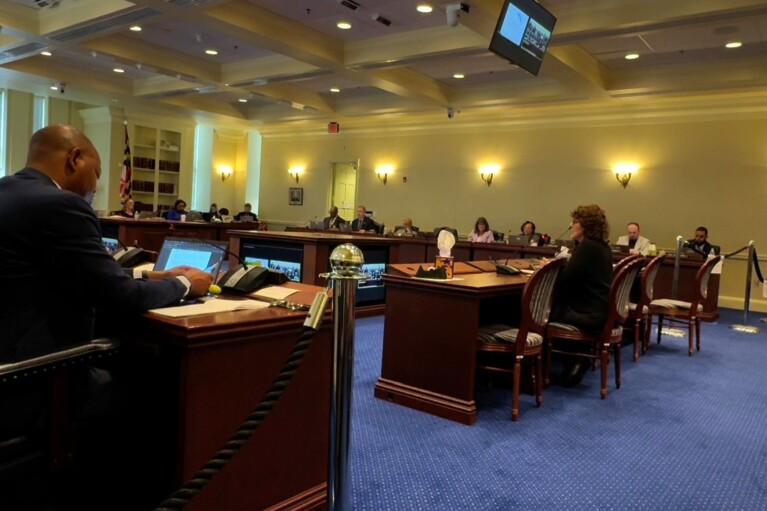New Evaluators Could be Coming to State Government

A core group of policy wonks could soon have full-time jobs analyzing the performance of state government offices.
The Senate Rules Committee voted Tuesday to advance Senate Bill 640 to the chamber floor. The bill would create the Office of Performance Evaluation and Government Accountability within the Department of Legislative Services. The office, with a core staff of four evaluators, would undertake reports on the performance of state government units, including recommendations for programmatic or policy changes.
Performance evaluations would include investigations of waste and fraud, and be more robust than, but complementary to the state’s current auditing process.
Creation of the new office is supported by the Department of Legislative Services and Office of Legislative Audits, which have been discussing the move for years. Similar performance evaluation offices exist in Connecticut, Maine, New Mexico, Florida, Colorado and other states, according to Victoria L. Gruber, executive director of the Department of Legislative Services.
The proposal would not cost extra money. The office will initially consist of four evaluators who will replace currently vacant auditor positions. Outside of legislative sessions, Office of Policy Analysis staffers will help contribute to performance evaluation reports.
The House sponsor of the legislation, Del. Shelly L. Hettleman (D-Baltimore County) called it “a very innovative approach to ensuring that our tax dollars are well-spent.”
Audits are traditionally led by accountants, who have financial expertise, but they tend to focus on whether standards are being met. A performance evaluator could take a more holistic look at government offices, Hettleman said.
“A performance audit is really a measure of compliance with standards. Whereas, a performance evaluation is ‘How is a program doing? Why is it succeeding or not succeeding?’” Gruber said. “And then what could be done, what recommendations can be made to make it more efficient, more effective and do what the legislature intended it to do?”
As part of the transition to an Office of Performance Evaluation, the Department of Legislative Services would curtail the sunset evaluations of more than 70 entities including the State Board of Well Drillers and the State Board of Chiropractic Examiners. The annual review of dozens of possible sunset deadlines draws away from other work analysts that would-be evaluators could do, Gruber said.
“So rather than us evaluating the chiropractors by law, we could be tasked by the Joint Committee to go in and look at something like the efficiency and effectiveness of the financial aid office,” Gruber said, referring to the Maryland Higher Education Commission financial aid office, which has attracted concerns from lawmakers in years past.
The bill would require boards subject to termination to file their own departmental-style bills to avoid sunset terminations. Generally, performance evaluations could be requested by the new office’s director, the legislative auditor or the renamed Joint Audit and Evaluation Committee.
The Senate bill is sponsored by Sen. Craig Zucker (D-Montgomery). The legislature’s presiding officers, House Speaker Michael E. Busch (D-Anne Arundel) and Senate President Thomas V. Mike Miller Jr. (D-Calvert) are listed as cosponsors on the measures.
During a House hearing last week, Del. Trent M. Kittleman (R-Carroll and Howard) said she was concerned about the line between the executive and legislative functions of state government. “And I’m not sure if this crosses that line,” she said in a later interview.
The Senate version of the bill passed the Rules Committee with little discussion on Tuesday. The measure is scheduled to go to the chamber floor on Wednesday.




 Creative Commons Attribution
Creative Commons Attribution